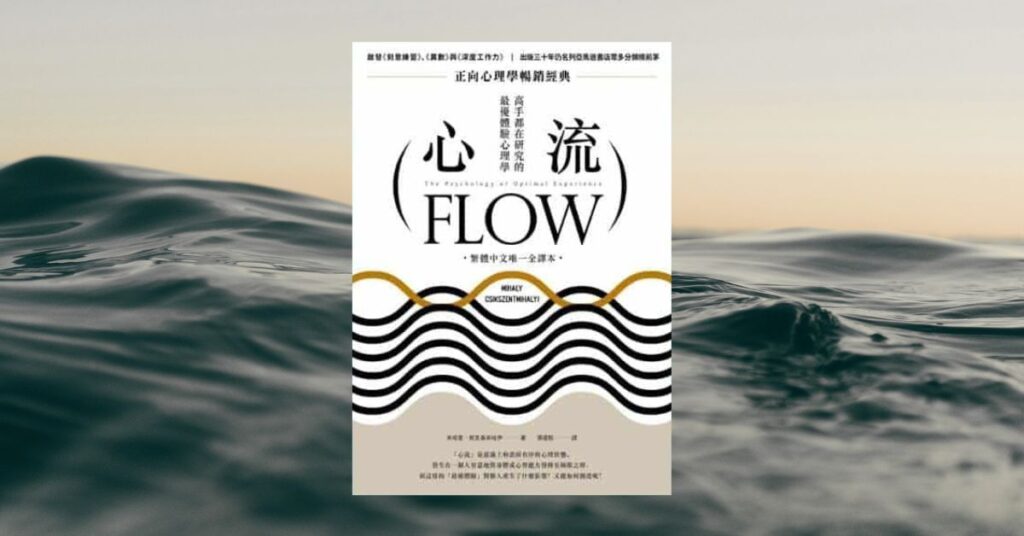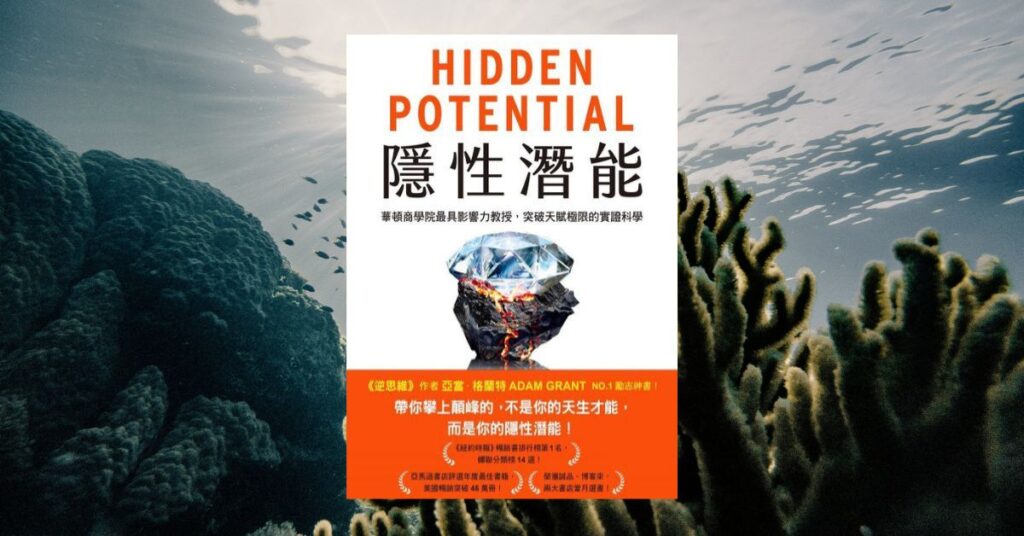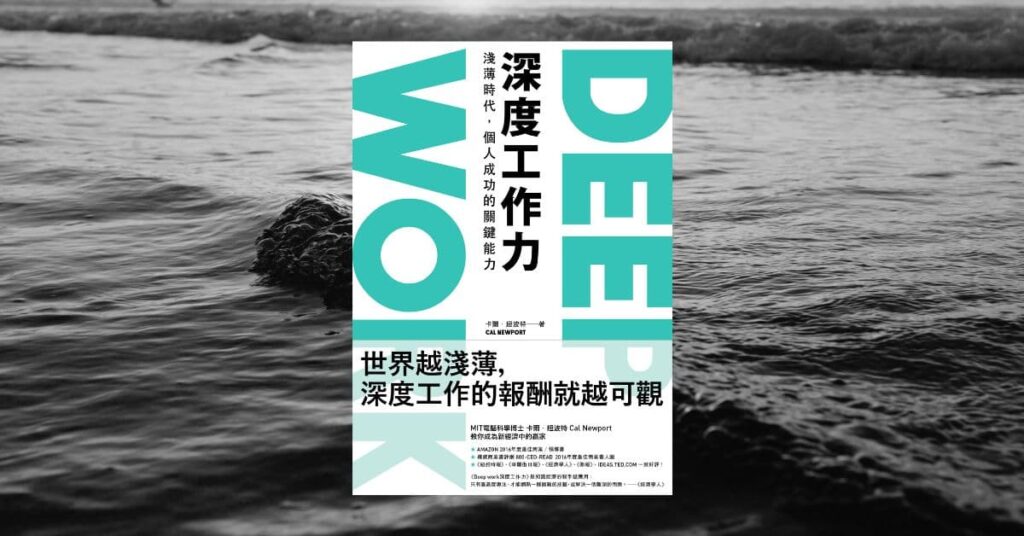Flow, written by Mihaly Csikszentmihalyi, is a classic work that explores how humans can achieve deep focus and inner happiness in life. Csikszentmihalyi introduces the concept of "flow" to reveal how we can find a sense of accomplishment in our activities and attain lasting happiness in our daily lives. This book is not only a deep dive into psychology but also a guide on how to find personal focus and fulfillment amid the fast pace of modern life.
What is Flow? Entering the World of Deep Focus
Flow, simply put, is the state where we become fully absorbed in an activity, losing track of time, and external distractions fade away. We enter a realm of self-transcendence. Csikszentmihalyi describes this state as one where we are "completely immersed, forgetting ourselves and our surroundings, focusing solely on the task at hand." This flow state typically occurs when we engage in challenging activities that match our abilities. You may have experienced this during sports, writing, learning a new skill, or engaging in creative work—moments when the world feels quiet, and it’s just you and your immediate goal.
Flow is not exclusive to large projects or difficult challenges; it can also occur in everyday tasks. Whether you're washing dishes or tidying up, if you immerse yourself fully in the task, you can experience the same sense of focus. This is the magic of flow—it is a state that brings joy and satisfaction naturally because, during the process, we find meaning, rather than simply chasing after an end result.
Why is Flow the Antidote to Modern Life?
In today's world, stress and distractions are everywhere. As we chase career success, wealth, and external validation, we often neglect our inner well-being. Csikszentmihalyi points out that this externally driven lifestyle fails to provide lasting happiness, as it leads us to constantly pursue the next goal without ever truly enjoying the journey. However, when we enter a flow state, all external pressures fade away, and we begin to savor each moment. The happiness we experience during flow comes from within, independent of external recognition or material rewards.
Flow teaches us that the true value of life is not just in achieving goals but in finding joy throughout the process of pursuing them. This sense of fulfillment derived from the journey itself strengthens our inner resolve, distancing us from the anxiety and stress caused by external pressures. When we focus on the task at hand, rather than obsessing over the outcome, flow emerges naturally, bringing with it a sense of genuine happiness.
The Three Key Elements of Flow: Clear Goals, Immediate Feedback, and the Balance Between Challenge and Skill
Achieving a flow state is not simply a matter of luck or intuition—it requires following specific steps. Csikszentmihalyi emphasizes that flow is most likely to occur under three conditions: when we have clear goals, receive immediate feedback, and find the right balance between challenge and personal ability.
- Clear Goals: Whether it's a long-term project or a small task at hand, having a clear goal is essential to entering a flow state. Only when we have a well-defined understanding of what we aim to achieve can we focus all of our energy on the task. These goals don’t need to be grand but must be specific and actionable, allowing us to know exactly what to do at each moment.
- Immediate Feedback: Throughout the activity, we need to know if we are on the right path. Feedback can come from external sources or self-reflection. For instance, a painter receives feedback through the evolving colors and smoothness of the brushstrokes, while a programmer knows the code is working based on whether the program runs correctly. This continuous feedback helps guide and adjust our actions, allowing us to improve and deepen our focus.
- The Balance Between Challenge and Ability: Flow is most likely to occur when our abilities are well-matched to the challenge at hand. This balance is delicate—if the activity is too simple, we become bored; if it’s too difficult, we feel frustrated. Csikszentmihalyi explains that flow emerges when challenge and skill are perfectly balanced, allowing us to stay engaged without feeling anxious or disinterested.
Flow and Everyday Life: Every Moment is an Opportunity for Creation
Readers may wonder if flow only exists in work or creative activities. The answer is no. Flow is not just a tool for productivity—it can permeate every aspect of our daily lives. For example, when tidying up a room or engaging in routine exercise, if we focus on each movement, we can also experience flow. Flow teaches us how to appreciate each moment of life, transforming mundane tasks from "boring chores" into meaningful experiences that bring inner satisfaction.
This shift in mindset helps us see everyday tasks not as burdens but as opportunities for focus. Take washing dishes, for instance—have you ever concentrated fully on each detail, feeling the water glide over your hands as you clean each dish? While this might seem insignificant, if we learn to immerse ourselves fully in these daily activities, we will discover many unnoticed moments of beauty and joy.
The Source of Creativity: How Flow Sparks Your Inspiration
There is a strong connection between flow and creativity. Csikszentmihalyi’s research reveals that many artists, musicians, writers, and scientists experience flow during their creative process. This state helps them overcome creative blocks, break free from conventional thinking, and tap into new sources of inspiration. When you fully immerse yourself in the act of creation, you'll find that external distractions fade away, allowing thoughts and ideas to flow freely, making the creative process feel effortless and enjoyable.
Flow is not reserved for a select few "geniuses." Anyone can enter a flow state by consciously adjusting their mindset. Whether you're writing, designing, coding, or solving problems, when you focus your attention on the challenge at hand and continuously adapt based on feedback, your creativity will naturally emerge. This means that flow not only helps you complete tasks more efficiently, but it also enables you to find deep satisfaction in the creative process itself.
Challenges in Modern Society: How to Avoid Distractions and Maintain Flow
In today’s digital age, maintaining focus seems more challenging than ever. Whether it’s phone notifications, social media alerts, or emails, external distractions constantly pull us away from sustained periods of flow. Csikszentmihalyi reminds us that focus is a skill that needs to be cultivated, not something that can be mastered overnight.
We can start by adopting small habits that reduce reliance on digital tools and create an environment conducive to concentration. For example, set designated work periods where you stay away from your phone and other distractions, or establish a quiet workspace that minimizes interruptions. These small changes can make it easier for us to enter flow. When we consciously manage our attention and resist external distractions, we’ll notice improved productivity and a lighter, more enjoyable mood.
Bringing Flow into Everyday Life: Cultivating Focus through Small Steps
Csikszentmihalyi emphasizes in his book that flow is not an unattainable state; rather, it is a skill that can be developed with practice. We can start small and gradually increase the frequency of experiencing flow. Whether at work or in daily life, we can learn to set clear goals and fully immerse ourselves in the process, gradually discovering the joy that focus brings.
A practical approach is to break complex tasks into smaller, manageable steps and set specific goals for each one. As we complete each step, we can experience the satisfaction of immediate feedback, which helps us enter the flow state. Whether it’s writing, learning new skills, or even completing everyday chores, this method enables us to stay focused on the present moment and find enjoyment in the process.
Flow and Happiness: Reassessing the Value of Life
In his book, Csikszentmihalyi prompts us to reflect on an essential question: what is true happiness? He points out that many people in modern society are overly focused on external success and rewards, often neglecting the importance of inner focus and fulfillment. When we fixate solely on the end result and overlook the joy and attention we can give to the process, happiness becomes elusive.
However, when we start to appreciate the small details in the process and learn to fully engage in the present activity, we naturally find a sense of calm and satisfaction. This happiness no longer depends on external validation or material rewards but arises from inner growth and focus. Each of us can discover our own happiness through flow. Whether in work or the small moments of daily life, if we fully engage with mindfulness, happiness is never far away.
Conclusion: Making Flow a Part of Your Life
Flow offers us more than just theoretical insights—it provides practical wisdom that can be applied in daily life. Csikszentmihalyi teaches us that true happiness comes from focusing on the process, rather than obsessing over the outcome. When we learn to harness our attention and fully engage in the present moment, flow naturally arises, allowing us to find satisfaction in every aspect of life.
Starting today, we can make an effort to integrate flow into our lives, whether in work or everyday tasks. Wherever we are, if we can immerse ourselves fully and focus on the present, happiness will follow. This is not only the secret to personal success but also the key to living a lighter, more joyful life.






